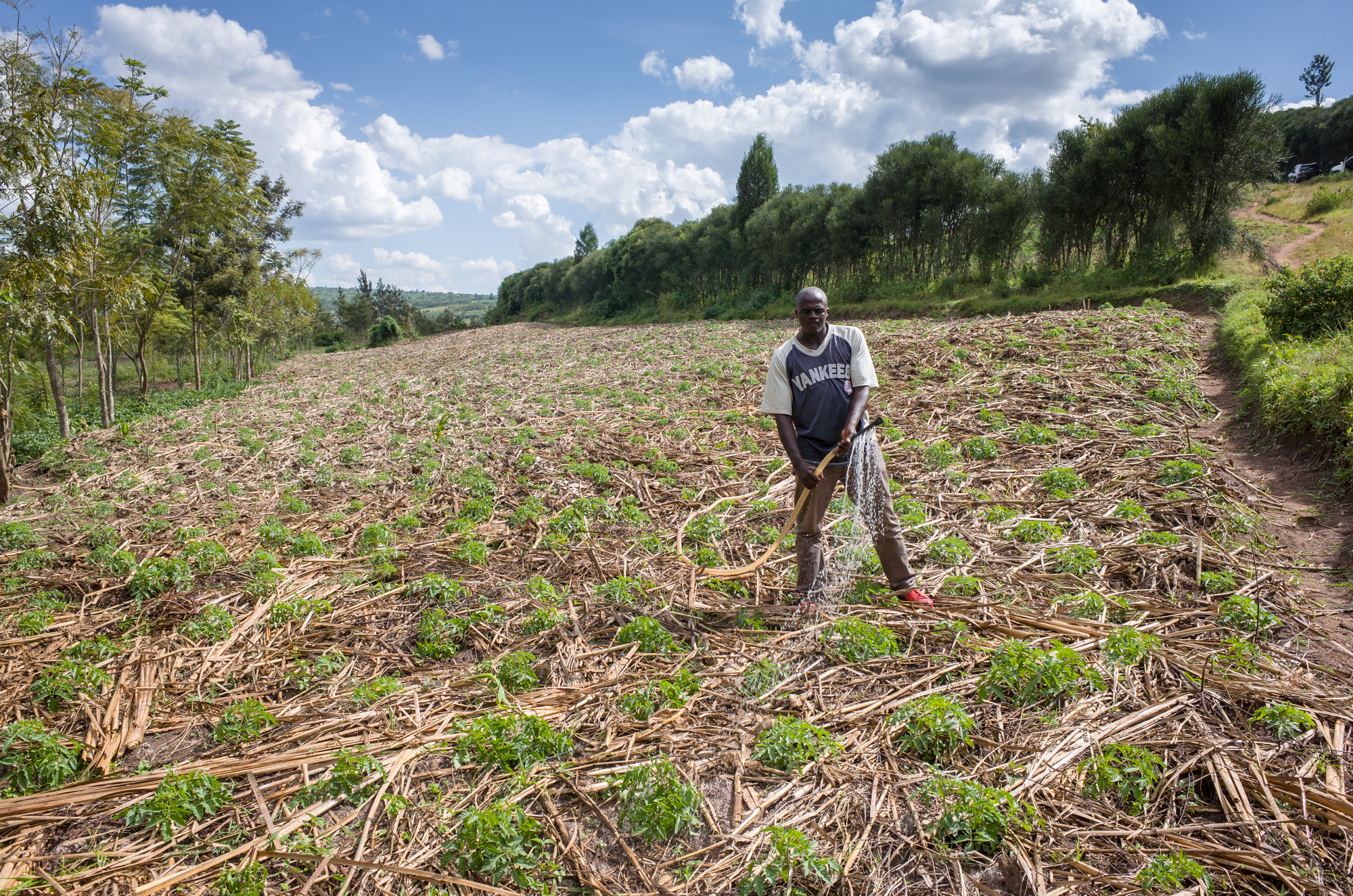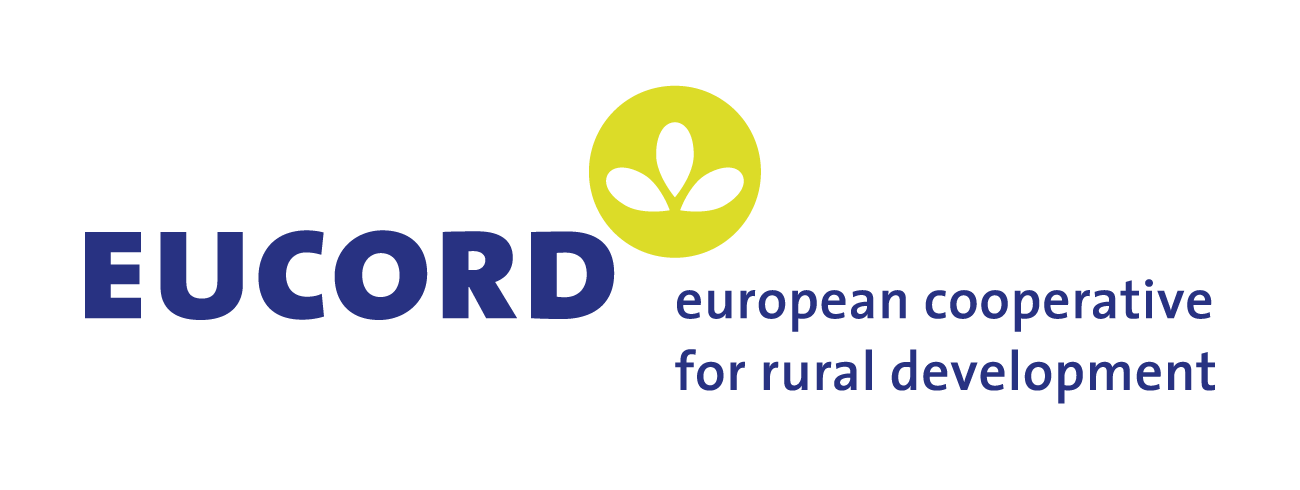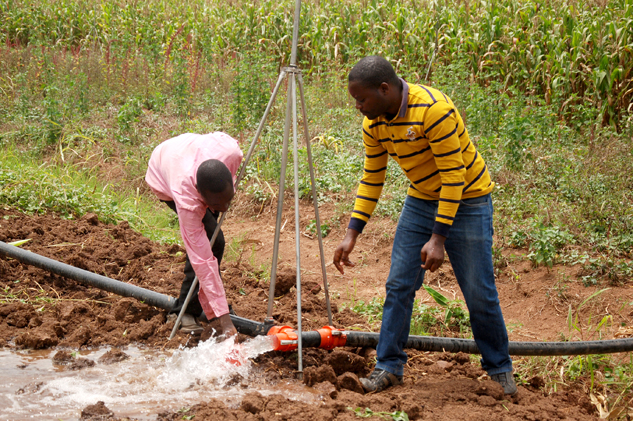From tilling small fragmented farms and cultivating them with a wide array of crops, 73 farmers working together in Jyambere Muhinzi Cooperative in Gishari Sector of Rwamagana district in Rwanda’s Eastern Province now have more than 100ha of land under maize farming and productivity has been increasing significantly since 2016.
Jyambere Muhinzi which in Kinyarwanda loosely translates into “farmer development,” engages in modern farming and is a role model on good farming practices for many farming cooperatives in the district.
To its members, notwithstanding their hard work, success gained so far has been possible thanks to the technical and equipment received from the Community Revenue Enhancement through Agricultural Technology Extension (CREATE) Project.
CREATE is a Heineken Group funded project through its local subsidiary BRALIRWA implemented by the European Cooperative for Rural Development (EUCORD).
The project seeks to empower farmers to earn more from their agricultural activities and in so doing foster community wide economic transformations.
Under CREATE, the focus has been among others on kick starting agricultural mechanization through irrigation among other initiatives.
In large parts of the Eastern Province including Kayonza and Rwamagana districts, the one-crop for the farmers as identified through scientific assessments of the land qualities conducted by the Ministry of Agriculture in its land consolidation and land use policy is maize.
Given that it coincides with a crucial raw-material in BRALIRWA’s brewing activities – maize grits – it is understandable why maize and these particular districts given Heineken Group’s sustainability target of increasing local sourcing of raw materials to at least 60% by year 2020.
Under CREATE, the focus has been to sensitise farmers on good farming practices such as use of quality agricultural inputs like fertilisers and timely planting, business management skills which help transform agriculture from subsistence to market oriented farming, and kick starting agricultural mechanization through irrigation among other initiatives.
And this wide array of approaches has born results particularly increased productivity, breaking the poverty yoke and changing the face of entire villages thanks to income earned from maize farming.
For the 73 farmers in Jyambere Muhinzi, their maize harvests have been progressively increasing. From 73.4 ons of maize in 2016/17 the cooperative is looking at 150 tons of this 2017/18 implying over 104% increase in a year.
According to farmers like Christine Mukakabano, maize has been a success and instrumental in changing their lives around.
“I cannot think of farming without the maize crop. It is only after I started cultivating maize that I was able to earn a significant amount at the same time from my farming. Originally, I used to do a lot of mixed cropping and could only earn a few thousand francs from selling my harvests. In the previous farming season, I brought in slightly over 1.3 tons of maize to the cooperative from which I earned about Frw300,000 that I used to make improvements in my family’s life including buying two goats.”
For other farmers like Hakizimana Innocent who was able to harvest 3 tons from his farming in farming season A of 2016/17, returns from maize have made his village better. “We have managed to rehabilitate our houses, our children are going to school and we are meeting our basic needs.”
Having access to a ready market for maize produce has been the major factor for the game changer that maize has been.
Many of the farmer cooperatives supported by CREATE are now fully registered, have managed to buy more land and are well advanced at being able to use available local financing opportunities to sustain their activities.
According to Fabien Ngoga who coordinates the project for EUCORD, the combination of farming techniques, agricultural mechanization, access to agricultural inputs and now strengthening farmer access to financial facilities is a success in building sustainable modernized farming that will eventually bring more cash in the hands of farmers in addition to making communities and the country food secure.
Cost effective irrigation solutions make all year farming possible. A crucial element in modernized market driven farming has the ability to be productive throughout the year.
For farmers both cultivating lowlands and hillside fields under the CREATE project, irrigation has opened up new farming seasons they never had and are producing crops they never thought possible.
Farmers who previously were only able to utilise farming seasons A and B and just waited around without serious work during the season C which is largely in the dry spells of Rwanda’s farming calendar are now able to farm throughout the year and as they testify, this is increasing their ability to make extra cash from what they their agriculture profession.
“Had it not been for irrigation, the harsh dry season we experienced in 2016/17 season A would have left us without even food for our families but thanks to irrigation solutions, we were able to have a good harvest and even produce other crops in the harshest of time,” Nshirigihunga Lambert the President of Jyambere Muhinzi Cooperative notes.
Armed with irrigation equipment and techniques, these farmers are now cultivating cabbages as a new crop all year to take advantage of a ready market of the vegetable in the neighbouring Rwanda National Police Training College in Gishari.
Armed with irrigation equipment and techniques, these farmers are now cultivating cabbages as a new crop all year.
Besides access to irrigation equipment and empowerment to make use of available Government of Rwanda facilities to incentivize use of irrigation in farming, farmers have also been trained on installation, operation, maintenance and minimal reparation skills for their irrigation units.
According to EUCORD’s irrigation specialist Maurice Binyebebe, farmers are given irrigation support for a year including on installation, operation, maintenance and minimal repairs. Alongside these services, skills on these areas are imparted so that cooperative members are able to continue on their own after the year.
“Currently, farmers we have been working with since early 2017 to install and operate irrigation solutions are able to manage them on their own thanks to various trainings received.”
To further make irrigation solutions affordable, the project has introduced solar powered irrigation units that will further improve usability and ensure that farming continues to bring more financial liberation to rural communities.
Thanks to smallholder farmers like those supported by CREATE, the establishment of an irrigated maize farm by BRALIRWA in partnership with MINIMEX in the Ndego Sector of Kayonza district and the extended impacts of these two initiatives, local maize harvests account for about 40% of Rwanda’s leading beverage manufacturer’s maize grits consumption.
Read this article and more in issue n° 83 of Hope Magazine.


Leave a Reply